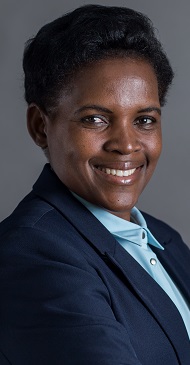
Social Work: A misunderstood profession

By Katiku Haingura
Social Service Consultant, Rundu.
Social work is a profession, which is always misunderstood. Government Institutions Pension Fund (GIPF) members believe that we are here to interfere in their lives, but our objective is to mediate and ensure that benefits are paid out timeously to the rightful beneficiaries.
My role as a social worker is responsible for conflict resolution amongst family members, most of which is caused by beneficiaries not acknowledging children or dependents born out of wedlock, spouses not recognized by the families of the deceased and generally families in dispute when a member passes on.
As a social worker, I am tasked with engaging the involved parties, asking relevant questions, and making recommendations, which guide the GIPF Board of Trustees in making decisions during the finalization of death claims. I also play the role of educating members by providing financial literacy sessions, coaching pre- and post-retiring members, as well as guardians and minors.
The reality is that this occupation is very challenging. One of the hardest things about working as a social worker is the emotional stress that comes with seeing the extremes of injustice and abuse. The challenge of working with vulnerable and marginalized populations, the stress and physical injuries that often accompany the job and the inability to fix every problem or save every member. To cope one should have enhanced problem-solving skills, especially during bereavement. Our African cultures, always believes someone must be blamed for the cause of death.
As a social worker, I am constantly seeing the ugliest parts of social injustice, oppression, and inequality. I can’t always help the people who need it most, but it is difficult to not feel personally upset by the problems and obstacles our members face, especially when the social services and programs needed to address those problems are not available or up to par.
No matter how good a social worker is at his or her job or how much that social worker is committed, it can be discouraging when a member stops cooperating or a policy, guideline or regulation that is in place is preventing a better outcome.
At GIPF, teamwork is one of our core values and we maintain strong bonds and communicate openly with both internal and external stakeholders to make work easier. This established relationship has provided a smoother process to link our members to our offices, and for them to obtain their benefits in a fair, just, and timely manner.
I enjoy being a social worker, because it is a multi-system level thinking, challenging and purposeful profession. Social work enables me to work with any type of individual and in vast predicaments. I feel blessed to be a part of a Fund as impactful as GIPF and get the greatest satisfaction in witnessing a positive outcome for our members. No words can explain the joy I feel when a member’s claim is finalised and all beneficiaries are fairly included in the distribution of the deceased’s benefits.
I advise upcoming social workers to ensure personal satisfaction in the social work profession by investing in their continuous professional development. This refers to any activity, which increases knowledge, experience and understanding, improves performance and contributes to lifelong learning. Constantly acquire new knowledge and skills as well as maintain and improve standards across all areas of your duties.
In conclusion, we as social workers are only human, which means that we are not immune to stress. I thus encourage other social workers to talk about their stress factors to professionals skilled to advise on how to deal with specific issues, get certain hobbies that will help you relax or go for retreats, which can offer some valuable relief and perspective.











































